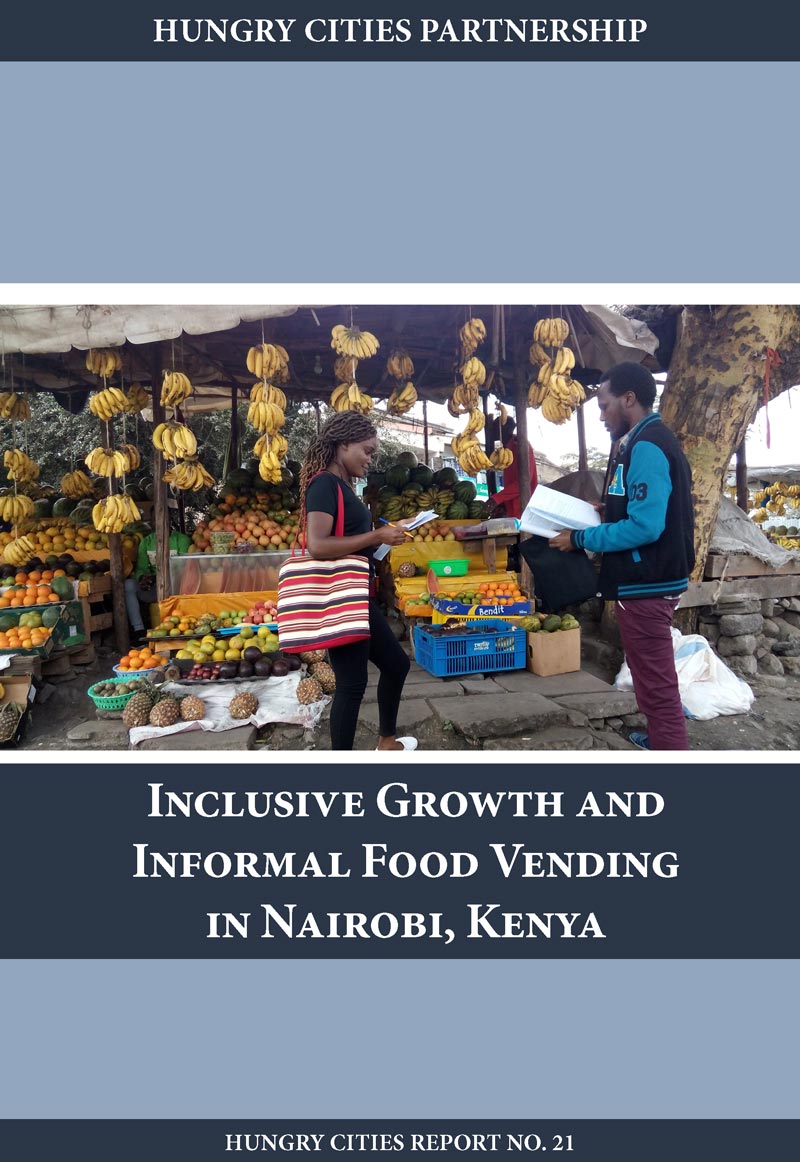This report presents and analyzes the findings of a city-wide informal food vendors survey conducted by the Hungry Cities Partnership in Nairobi, Kenya. The survey findings demonstrate that the informal food sector makes food more accessible and affordable in low-income areas and to food-insecure households in Nairobi. It is also a major source of employment and income for the vendors involved. The food retail, distribution, and preparation sector is a major component of urban informality in the Global South. The informal food economy comprises a dense and diverse network of informal markets, suppliers, transporters, mobile traders, hawkers, retailers, and street food vendors. Through making food more accessible and affordable to poor urban households, the informal food sector is critical to food security in rapidly growing towns and cities in the Global South. While the vibrancy of the sector is everywhere apparent, research on the structure, organization, dynamics, and impacts of informal food systems under conditions of hyper-urbanization has been limited. What is clear is that the informal food sector is both diverse and complex. By working in an interdisciplinary context with mixed methodologies and across different cities, the Hungry Cities Partnership aims to add considerably to our understanding of common elements and differences across the Global South.

